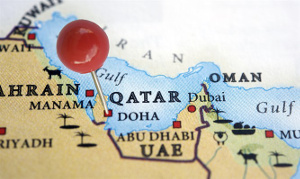Yesterday’s Washington Post report that US intelligence officials had found evidence the “fake news” hack that precipitated the Qatar blockade was actually a plot that originated with the leadership of the United Arab Emirates has fueled an angry response from Qatari officials, who say such actions are a violation of international law.
 Qatari Communications Office head Saif bin Ahmad al-Thani said the Qatari government found it particularly unfortunate that “this shameful act of cyber terrorism” was committed by a fellow member of the Gulf Cooperation Council (GCC), despite myriad GCC agreements forbidding such hacking.
Qatari Communications Office head Saif bin Ahmad al-Thani said the Qatari government found it particularly unfortunate that “this shameful act of cyber terrorism” was committed by a fellow member of the Gulf Cooperation Council (GCC), despite myriad GCC agreements forbidding such hacking.
The hacking targeted Qatar’s state news agency the QNA, with hackers planting a fake story on their website quoting Qatar’s Emir praising Hamas and Iran. The false quotes fueled a blockade against Qatar led by Saudi Arabia, in which the United Arab Emirates has eagerly participated.
Qatar had been investigating the hack for some time, and has asked the FBI to help with the investigation. US officials say they intercepted communications revealing that the plot was discussed the day before the hack took place by senior UAE officials.
If this ultimately proves true, it’s not only a violation of deals the UAE is a party of in the GCC and Arab League, it’s an incredibly dishonest way for them to have provoked the Saudi-led anti-Qatar crisis. This may further reflect that this split, far from being a misunderstanding, is a more dramatic incident that’s going to remain a divisive issue in the Persian Gulf for a long time to come.


